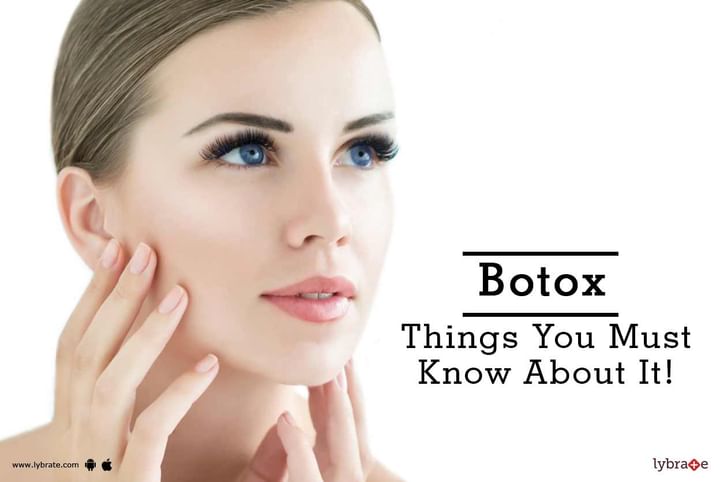Botox - Things You Must Know About It!
Are you planning on undertaking a botox treatment? Botox is a drug which is made from a neurotoxin. This is produced by the bacteria called Clostridium botulinum. Botox is used for medical purposes, commonly for treating muscular conditions. It is also used for cosmetic procedures, which help in removing wrinkles. This process is carried out by paralyzing the facial muscles temporarily. Botulinum toxin is also sold commercially under certain names.
Medical and Cosmetic Uses-
Botox is most commonly used as a treatment procedure for reducing the appearance of facial lines and wrinkles in middle-aged adults. It is also used for medical purposes, for the treatment of conditions such as eye squints, excessive sweating, leaky bladders and migraines. Botox is used for treating more than 20 medical conditions.
How Does Botox Work?
Botox or botulinum toxin is a very poisonous substance, and a single gram of it is capable of killing more than one million people. It is considered to be an effective therapeutic protein when used in ideal dosage, and frequency. It is used in several medical procedures and treatment therapies.
How is Botox Procedure Undertaken?
Botulinum toxin is administered by diluting the power in saline. It is injected directly into your neuro-muscular tissue. A duration of 24 to 72 hours is required for it to take effect. This time reflects the time required for disruption of the normal synaptosomal process of the body. It may take over five days for experiencing the full effects of botox. Botox must not be used in women who are pregnant or lactating, or by people having a previous allergic reaction to it.
Risk and Side-Effects:
Injections which contain botox are usually well tolerated. They have several side effects as well.
-
In some cases, a person may have a genetic predisposition which causes a mild, transient and unusual response to Botox. Some people who are receiving botox type A injections may develop antibodies to the toxins, which may make the treatment ineffective. In people who are using botox type B for cervical dystonia, antibody development may occur.
-
Along with the effects intended, botulinum toxin may lead to several other undesirable effects. They may include conditions such as transient numbness, headaches, malaise, mild cases of nausea, mild pain, local edema and erythema on the site of injection.
-
Temporary tiredness, fatigue or the paralysis of nearby musculature may also be experienced because of the reaction of the toxin.
-
Drooping or temporary upper lid and brow ptosis are also indicated.
Among the two types of botox treatments, the results from abobotulinum toxin A is considered to be more effective than onabotulinum toxin A treatment. Better results are experienced when the muscles are contracted instead of being at rest.



+1.svg)
